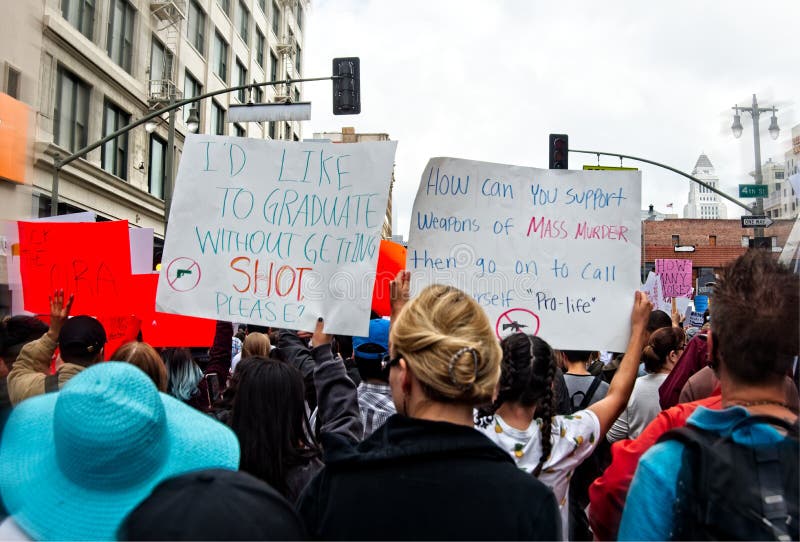The intersection of Bahá’í teachings and societal activism presents a unique framework through which individuals can navigate the complexities of modern challenges, particularly those related to social justice, education, and community empowerment. One pertinent manifestation of these ideals is the “March for Our Lives,” a movement spurred by a collective outcry against gun violence and a call for comprehensive reform. How can the principles of the Bahá’í Faith invigorate such advocacy, and what profound implications does this hold for our society? This inquiry is not merely rhetorical; it poses a significant challenge to our collective conscience.
To embark on this exploration, one must first delineate the foundational Bahá’í tenets that resonate with movements advocating for change. Central to Bahá’í philosophy is the concept of oneness—of humanity, of purpose, and of God. This foundational belief posits that all individuals, regardless of their backgrounds, are interconnected and hold a shared responsibility for the well-being of the global community. As seen in March for Our Lives, this interconnectedness manifests through youth-led initiatives aimed at addressing violence. Their commitment to advocacy highlights the Bahá’í teaching that “the earth is but one country, and mankind its citizens.” This principle invites individuals from various walks of life to unify under a common cause, transcending geographic, ethnic, and ideological divisions.
Furthermore, the Bahá’í teachings emphasize the importance of justice—a cornerstone that aligns seamlessly with the objectives of the March for Our Lives movement. The urge to rectify injustice, particularly in systems that perpetuate violence and inequality, mirrors the Bahá’í imperative for social action. Such action is not merely encouraged; it is a duty of every believer to contribute positively to society. This perspective challenges us to reflect: are we merely observers of societal issues, or are we actively engaging in the pursuit of justice? To answer this question is to grapple with our own commitments and responsibilities.
Moreover, the emphasis on education within the Bahá’í Faith reinforces the need for awareness, understanding, and enlightenment as prerequisites for effective activism. Education serves as a powerful tool in combating ignorance, a primary source of societal ills including violence. The March for Our Lives movement seeks to educate both the public and policymakers on the implications of gun violence, aiming to foster informed discussions that lead to sustainable change. Through the lens of Bahá’í teachings, one recognizes that the quest for knowledge is not just an individual pursuit but a collective responsibility. This lead to a contemplative challenge: how are we, as a society, cultivating an informed populace that is equipped to advocate for justice?
Importantly, the Bahá’í teachings call for consultation—a cooperative process that encourages open dialogue and mutual respect. This principle could serve as an instructive model for organizing and rallying efforts within movements such as March for Our Lives. Engaging diverse voices in consultation not only enriches the dialogue but also helps forge consensus on the actions required to address pressing issues. This brings forth another challenge: how do we ensure that all voices are heard and valued in the conversations surrounding the youth’s advocacy against gun violence?
As the March for Our Lives continues to evolve, it embodies the Bahá’í vision of proactive engagement in societal issues. The participants’ fervor is a testament to the fact that today’s youth are not merely passive recipients of circumstance; they are active agents of change, wielding the power of collective mobilization. Their efforts demonstrate the Bahá’í principle that the youth are the “bearers of the future” and should be actively involved in shaping their communities. This notion provokes further reflection: how can society better support youth leadership in championing causes that reflect Bahá’í principles?
Another salient point of inquiry is the role of spiritual enrichment in activism. Within Bahá’í teachings, spirituality is not an abstract notion but a practical guideline for everyday life. Engaging in prayer and meditation is seen as a means to cultivate inner strength, resilience, and clarity of purpose—all vital attributes for advocates rallying around significant issues like gun control. The challenge, then, lies in finding pathways that integrate spiritual practices with secular activism. How can we cultivate a balance that honors spiritual convictions while addressing immediate social concerns?
Furthermore, the Bahá’í approach to service underscores the importance of altruism in activism. Individuals engaged in movements like March for Our Lives tend to embody a spirit of service, dedicating their time and efforts not for personal gain but for the betterment of society. This commitment to selflessness reflects the Bahá’í principle that true progress comes from a sense of responsible citizenship. This perspective compels us to consider: in our pursuits for a better world, how consciously are we serving beyond ourselves? Are our efforts rooted in authentic concern for others?
In conclusion, the teachings of the Bahá’í Faith provide a profound framework for understanding and participating in movements advocating for social change, such as March for Our Lives. The principles of unity, justice, education, consultation, and service serve as integral components that can inspire action and resolve societal issues. The questions posed throughout this discourse serve not only as prompts for individual reflection but also as challenges to collectively shape a future imbued with compassion, understanding, and sustained commitment to justice. Ultimately, the march for a better world requires not just the resilience of youth but the cooperative spirit of all humanity, united in purpose and action.
